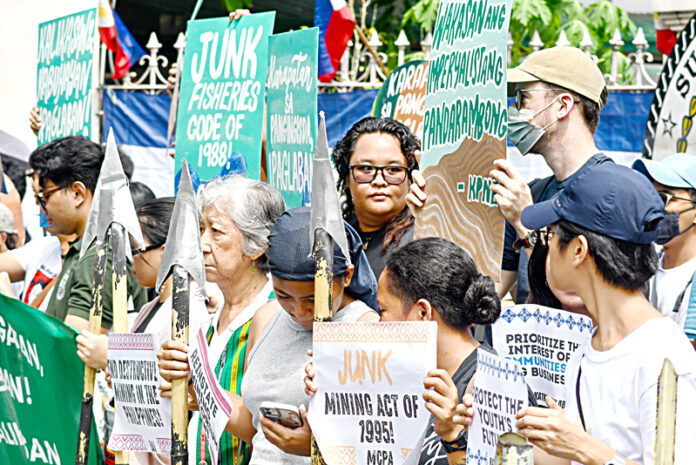“Impeachment is a critical mechanism for accountability and a vital component of the checks and balances within our government”
The impeachment case against Vice President Duterte is built upon serious accusations: misuse of confidential funds, threats against senior officials, and involvement in extrajudicial killings.
Four months have passed since the House of Representatives impeached Vice President Duterte. Yet, the Senate has failed to convene as an impeachment court, let alone commence the trial.
This inaction flies in the face of the Constitution’s mandate that the Senate proceed “forthwith.”
“Forthwith” is unambiguous: it means immediately and without delay. Article XI, Section 3(6) of the 1987 Constitution doesn’t suggest; it commands the Senate to begin the impeachment trial “forthwith.”
Since the Articles of Impeachment were transmitted to the Senate four months ago, the trial has been repeatedly postponed. Senate President Escudero recently scheduled the trial for June 11, just two days before the 19th Congress adjourns sine die, citing the need to prioritize pending legislation.
These delays beg the question: Are they driven by political expediency or genuine procedural necessity?
Senator Risa Hontiveros aptly stated these delays “are no longer procedural but obstructions dressed up as protocol.”
She emphasized “the impeachment process is a crucial means of demanding accountability exclusively entrusted by the people to the Senate.”
Impeachment is a critical mechanism for accountability and a vital component of the checks and balances within our government. The threat of impeachment deters corruption, abuse of power, and unethical behavior, encouraging leaders to govern within legal and ethical boundaries.
Members of the faculty of the University of the Philippines College of Law, led by its constitutional law cluster of which I am a member, has issued a statement based on a publication by our brilliant colleague, Paolo Tamase. I quote from that statement.
We note that notwithstanding the Constitution’s plain mandate for the Senate to “forthwith proceed” with this most special constitutional function, it did not begin trial when it returned from recess on June 2, 2025. Respectfully, a dismissal at this point would be deemed by the Filipino people as effectively engineered by the Senate’s own delay and an abdication of its Constitutional role in impeachment.
xxx
Post-1987, impeachments have been the venue for the most important national conversations on good governance and the standards we, the sovereign Filipino people,’ impose on our highest officials. Its character as an accountability mechanism is not simply suggested by its placement under Article XI of the Constitution (Accountability of Public Officers) it is confirmed by constitutional and political history.
In the Estrada impeachment, the non-opening of the second envelope was premised on evidentiary objections regarding relevance and materiality; for the people, it was suppression of the truth that ended in the removal of a President.
In the Corona impeachment, the Chief Justice delivered an emphatic statement defending himself; the tide turned when he abruptly walked out of the impeachment trial before the Senate could ask him questions.
While every initiation of impeachment is understandably controversial if not divisive, the people eventually congregate around the Impeachment Court to find “the truth, the whole truth, and nothing but the truth” about serious disqualifying allegations against its highest public servants.
We are deeply concerned with moves to preemptively dismiss the impeachment case not because we necessarily believe in the charges: we do so because we wish to see the evidence, hear the Vice-President’s defense, and with our fellow Filipinos, judge for ourselves her fitness to continue in public service.
In these difficult moments, the people look to their Senate to be the forum for the country’s most important truth-telling procedure because of its seniority, independence, and reputation for statesmanship.
As teachers and scholars of the law, we believe that the Senate’s dismissal without hearing even a single witness will mean its abandonment of its proud tradition as an august chamber and permanently alter our system of checks and balances. It will also undermine the people’s trust in the Senate as an independent and impartial institution before which the highest officials of the land may demonstrate and prove their fealty to the principles of accountability, public service, and democracy.”
On Tuesday, June 11, all roads must lead to the Senate. Let us demand that it convene as an impeachment body and trial shall proceed forthwith!
Website: tonylavina.com. Facebook: tonylavs Twitter: tonylavs







